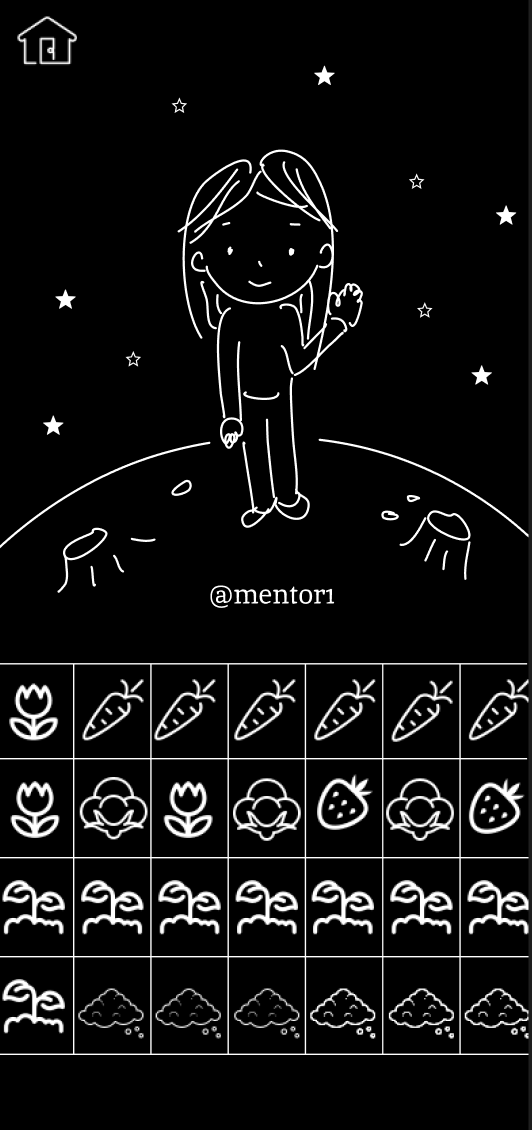PInker Rain
A mobile game-based learning application used to track the hormonal cycle of the user, with a mentorship model to support young teens reaching puberty as well as older adults managing health symptoms.
Menstrual mentorship
To serve both interest groups of young girls experiencing puberty, as well as adult women managing their menstrual health, the system allows users to opt into a mentorship mode. Users are assigned a mentor, defaulting each other’s character and garden to be accessible to each other. To interact with their mentor. The resources described before can be combined to create different items, and items can be gifted to the mentor or mentee for additional friendship points.
Despite being a natural bodily process impacting the quality of life, menstruation remains inadequately addressed and stigmatized, with many girls and women lacking sufficient practical knowledge surrounding cycles. This project proposes gamifying educational period-tracking mobile applications to promote improved menstrual literacy and self-care practices. After reviewing problems like taboos limiting school instruction and reliance on misinformed internet resources, the concept aligns constructivist and empowerment principles to enable interactive knowledge construction through game mechanics.
A smartphone app is designed leveraging quests, progress tracking, rewards, resource cultivation, customization, social features, and overarching narrative situating facts within a relatable coming-of-age story. Daily wellness logging unlocks relevant educational content while game elements drive ongoing engagement. Personal data visualizations reveal health connections over time to aid self-understanding. Gamifying tracking incentivizes consistency, enabling discernment of usual cycle patterns.
Goals center on conveying pragmatic menstrual information often omitted from traditional curricula, like managing symptoms, hygiene practices, anatomy, fertility, and communication strategies in accessible, destigmatizing formats. Outcomes target improved cycle awareness, symptom mitigation self-efficacy, healthcare literacy, and pride surrounding menstrual embodiment. Integrating facts within an uplifting interactive narrative aims to transform limiting attitudes, advancing lifelong holistic cycle understanding.
Research informed adaptive design
User research was conducted through literature reviews, reviews of competing products, as well as a focus group to gauge common pain points surrounding menstruation. Based on learning goals, knowledge regarding menstrual health can be divided into 4 categories: Self-care practices, hygiene and products, cycle awareness, and healthcare communication. According to the user input of their symptoms of each day, the system will deliver adaptive information best suited for the user’s needs. For example, if a user inputs period flow as heavy, the system will suggest intake of enriching foods like chocolate or salmon to increase omega-3 intake, as well as supply information on different menstrual products for users to be aware of.




